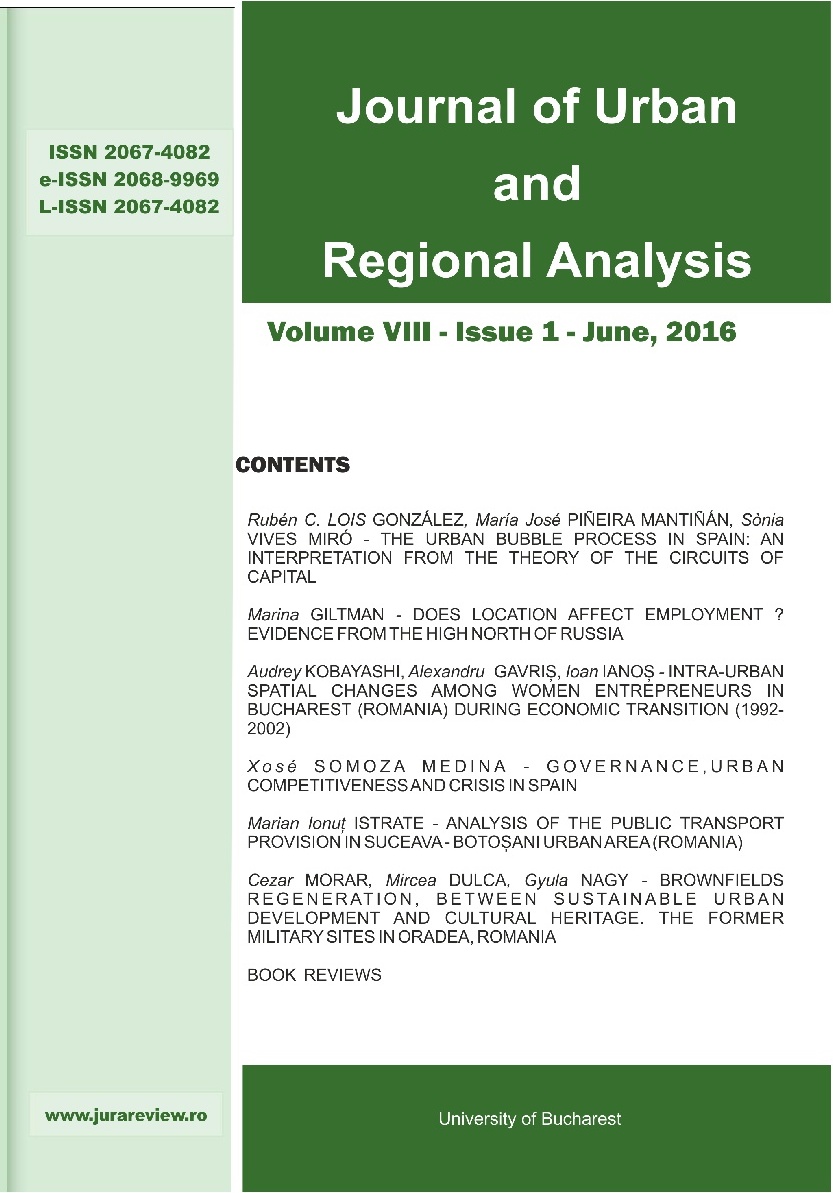THE URBAN BUBBLE PROCESS IN SPAIN: AN INTERPRETATION FROM THE THEORY OF THE CIRCUITS OF CAPITAL
THE URBAN BUBBLE PROCESS IN SPAIN: AN INTERPRETATION FROM THE THEORY OF THE CIRCUITS OF CAPITAL
Author(s): Rubén C. Lois González, María José Piñeira Mantiñán, Sònia Vives MiróSubject(s): Economy, Labor relations, Rural and urban sociology, Transformation Period (1990 - 2010), Present Times (2010 - today)
Published by: Editura Universitară
Keywords: circuits of capital accumulation; metropolitan areas; polycentric urban system; urban sprawl; Spain;
Summary/Abstract: Urbanization in Spain has advanced rapidly in the last twenty years or so. The phenomenon was particularly pronounced in the period spanning 1990-2007, when the construction of housing on a mass scale was a clear indicator of the second circuit of capital accumulation, with space playing a key role through the work of David Harvey. This led to a property bubble – one of the defining features of the economic and financial crisis in Spain between 2008 and 2013. In this contribution to the subject, we analyse the factors that triggered unchecked speculative urban growth in the context of the financialization of land. In tandem, our conclusions present the new resulting urban and metropolitan map of Spain, which is now characterized by uneven levels of occupancy among regions.
Journal: Journal of Urban and Regional Analysis
- Issue Year: 8/2016
- Issue No: 1
- Page Range: 5-20
- Page Count: 15
- Language: English

